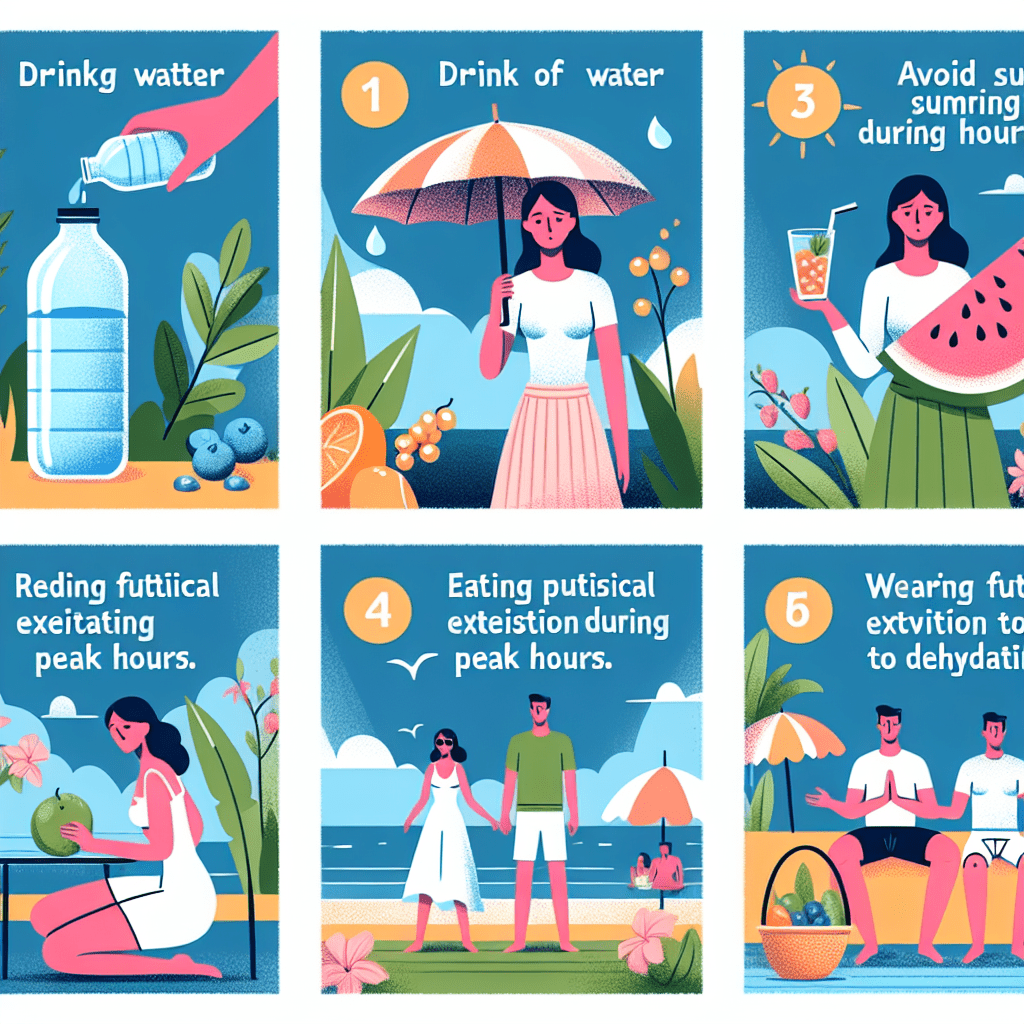Top 5 tips to avoid dehydration

Top 5 Tips to Avoid Dehydration
Dehydration is a condition that occurs when the body loses more fluids than it takes in, leading to a deficiency of water in the body. This can result in a variety of health issues, ranging from mild discomfort to severe medical conditions. Staying hydrated is essential for maintaining overall health, as water plays a crucial role in various bodily functions, including temperature regulation, joint lubrication, and nutrient transportation. Here are the top five tips to help you avoid dehydration and maintain optimal health.
1. Drink Plenty of Water
The most straightforward way to prevent dehydration is to drink plenty of water throughout the day. The amount of water each person needs can vary based on factors such as age, gender, weight, and activity level. However, a general guideline is to drink at least eight 8-ounce glasses of water per day, commonly known as the "8x8 rule." This equates to about 2 liters or half a gallon of water daily.
It's important to note that you should increase your water intake if you are physically active, live in a hot climate, or are experiencing illness. "Water is the driving force of all nature," said Leonardo da Vinci, emphasizing the fundamental importance of water in our lives.
2. Eat Water-Rich Foods
Incorporating water-rich foods into your diet is another effective way to stay hydrated. Fruits and vegetables such as cucumbers, watermelon, strawberries, and lettuce have high water content and can contribute significantly to your daily fluid intake. These foods not only provide hydration but also supply essential vitamins, minerals, and fiber.
According to a study published in the American Journal of Clinical Nutrition, "Foods contribute about 20% of total water intake." This highlights the importance of a balanced diet in maintaining hydration levels. Including a variety of water-rich foods in your meals can help you stay hydrated and support overall health.
3. Monitor Your Urine Color
One of the simplest ways to gauge your hydration status is by monitoring the color of your urine. Pale yellow or straw-colored urine typically indicates adequate hydration, while darker urine can be a sign that you need to drink more fluids. Clear urine may suggest overhydration, which can also be problematic, although it is less common.
Paying attention to your body's signals can help you adjust your fluid intake accordingly. "Your body will tell you what it needs," said Dr. Michael F. Roizen, a renowned health expert. By staying attuned to these signals, you can ensure that you are maintaining proper hydration levels.
4. Avoid Dehydrating Beverages
While it's essential to drink plenty of water, it's equally important to be mindful of beverages that can contribute to dehydration. Alcohol and caffeinated drinks, such as coffee and soda, can have a diuretic effect, leading to increased urine production and fluid loss. Consuming these beverages in moderation and balancing them with water can help you maintain proper hydration.
Dr. Lawrence Armstrong, a hydration expert, stated, "Caffeine can have a mild diuretic effect, but it doesn't offset hydration." This means that while caffeinated beverages can contribute to fluid loss, they can still be part of your overall fluid intake when consumed responsibly. To stay hydrated, prioritize water and limit your intake of dehydrating beverages.
5. Set Hydration Reminders
In our busy lives, it's easy to forget to drink enough water. Setting reminders can be an effective way to ensure you stay hydrated throughout the day. You can use smartphone apps, alarms, or even sticky notes to prompt you to drink water at regular intervals. Additionally, carrying a reusable water bottle with you can serve as a visual reminder to stay hydrated.
Establishing a routine can also help you develop healthy hydration habits. For example, drinking a glass of water first thing in the morning, before meals, and before bedtime can ensure that you are consistently replenishing your body's fluids. "Hydration is key to maintaining energy levels and overall health," said Dr. John Berardi, a nutrition expert. By making hydration a priority, you can support your well-being and prevent dehydration.
Conclusion
In summary, staying hydrated is essential for maintaining optimal health and preventing dehydration. By drinking plenty of water, eating water-rich foods, monitoring your urine color, avoiding dehydrating beverages, and setting hydration reminders, you can ensure that your body receives the fluids it needs to function properly. Remember that hydration is a continuous process, and making it a part of your daily routine can have lasting benefits for your health.



